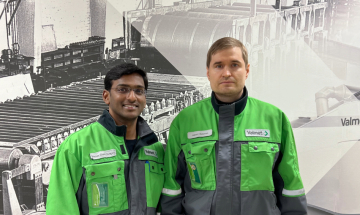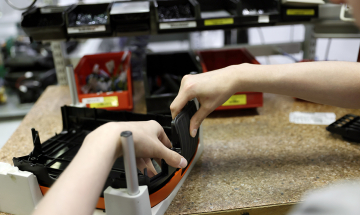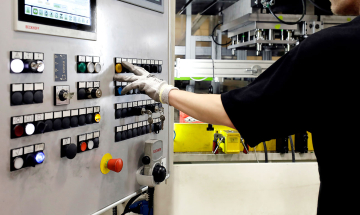Situation and Outlook of the Finnish Technology Industry 1/2015: Growth is triggered by investments
The turnover of companies in the technology industries in Finland totalled EUR 66.5 billion in 2014. This represents a growth of some two per cent from the previous year. The growth was mainly driven by the game, steel production and vehicle industries.
Technology industry companies received slightly increased levels of new orders between October and December 2014 from the previous year. However, they did not quite reach the level recorded in the previous quarter. Order books remained stable due to the ship orders received in the previous quarter.
Judging from order trends in recent months, the turnover of technology industry companies is expected to be slightly higher in early 2015 than in the corresponding period last year.
In 2014, the number of personnel employed by Finnish technology industry companies decreased by almost 10,000 employees. On average, the industry employed 276,000 people in 2014.
Despite the reductions, technology industry companies recruited a total of 20,000 new employees last year. Some companies were increasing their personnel, while others were hiring new employees due to retirements and employee turnover.
Companies willing to invest in Finland
Jorma Turunen, CEO, at the Federation of Finnish Technology Industries, is convinced that Finnish companies want to grow and provide employment in Finland.
- Industrial investments have remained low for an extended period in Finland and must now be triggered. At their current levels, production capacity and projected economic growth cannot finance the public sector, Turunen remarks.
Sanna Rauhansalo, the new Head of Public Affairs, Industrial Policy, at the Federation of Finnish Technology Industries would like to see the next parliament and government place special emphasis on growth, competence and renewal. Their first order of business should be to ensure that any investments held back by bureaucracy are carried out.
- It is important to remember to invest into the future, despite the prevailing pressure to introduce savings, Rauhansalo points out.
The profitability of companies in Finland has collapsed in the past few years. This is a widespread trend in all sectors, including those in technology industry. On average, technology industry companies’ net income amounted to only 0.9 per cent of their total turnover in 2013. The average share was 7.3 per cent between 2000 and 2005, and 12 per cent between 2006 and 2007.
- This is of great concern, because only profitable companies are in the position to make investments. Simplified bureaucratic processes are one way to encourage investments, while taxation is another. At the moment, companies and owners have no real tax-based incentive for long-term investments in Finland, Rauhansalo says.
- A tax code should be transparent, simple, supportive, fair and predictable. This is not the case now, Rauhansalo says.
The main problems of the Finnish tax code are related to its weak dynamics, double taxation of company profits and change-of-generation taxation. The tax wedge hinders employment and the creation of new jobs.
Growth opportunities must be grasped
Finland is considered a leader in terms of skills. A small nation such as ours must utilise its educational resources as effectively as possible. Education should be better matched to companies’ needs to make the entry of new graduates into labour market as smooth as possible. In practice, it means that businesses and higher education institutions must work even closer together.
- Investments into R&D and innovation together with government procurement create new business, increase investments in Finland and boost productivity. The government should focus on supporting RDI. Both Tekes (the Finnish Funding Agency for Technology and Innovation) and the strategic centres of excellence have an important role to play in this, Turunen remarks.
Before making decisions, the parliament and government must assess their benefits and costs. We need less bureaucracy and public services could also be made more efficient by digitisation for example.
- Nevertheless, those seeking growth must turn to the export markets. SMEs in particular need effective services that support their internationalisation and exports, Turunen reminds us.
Finland is located far from its markets, which already creates a cost burden in terms of transport costs. We should not add to this burden.
Further information:
Jorma Turunen, CEO, tel. +358 500 445 444
Sanna Rauhansalo, Head of Public Affairs, Industrial Policy, tel: +358 50 340 6174
Jukka Palokangas, Chief Economist, tel. +358 40 750 5469
firstname.lastname@teknologiateollisuus.fi
Situation and outlook of Finnish technology industry 1/2015 (report, pdf)


